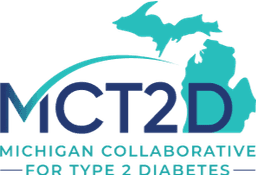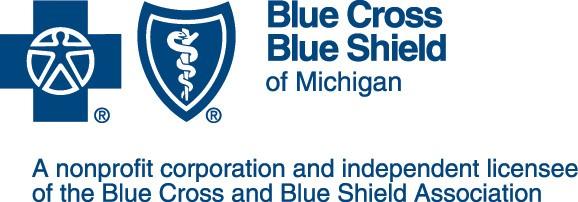NEWS & EVENTS
SPECIALTY CARE
350
primary care practices
23
endocrinology practices
14
nephrology practices
24
of all physician organizations in Michigan

If you are a PO
If you are a PO:
- MCT2D recruits physician organizations every 2 years. MCT2D will resume recruitment in 2026.
- PO recruitment opens in January and lasts through February during a recruitment year.
- MCT2D PO recruitment begins with an informational session about the program. A recording of the 2024 informational session can be found here.
- Interested POs complete an application via Qualtrics during the recruitment window. MCT2D typically has a limited number of POs that they can enroll during a given recruitment cycle.
- Complete the PO Application distributed by MCT2D.
- If a PO is accepted to join the program, MCT2D will reach out within two weeks following the end of the recruitment cycle and the PO will be able to add eligible practices until mid-April.
“Offices are so short-staffed. It’s difficult to balance all the various initiatives. But practices are seeing the benefit, and they like the resources on the MCT2D site. They’re very helpful for practices.
MCT2D is very organized. There’s an abundance of patient resources and provider resources, and they’re very on top of everything.”
- PO Administrative Lead
When I look back on our participating with MCT2D, we received all of this really good information and knowledge. I enjoyed all of the trainings that we all took.
We embraced it and the MDs were willing to work on it. And in the end it made a difference.
It's really cool to see the A1Cs going down. From the CGMs, it's really cool to see the patients take charge of their diabetes.
—Participating PO
What I really like about the data dashboard: A medical assistant could go through find patients who are good candidates for a CGM and send a note to each of their PCPs.
—Primary Care Physician Member
Honestly, at first I did not want to participate in Coverage Quest, but then I actually found it useful. Good job! Very creative.
--Regional Meeting Attendee and Clinical Champion
I think you guys are doing a great job with the resources. The offices are using them all the time. Especially the coverage guide. It's like our bible.
--PO Liaison
If you are a primary care physician practice:
- Reach out to your contact at your physician organization to see if they are participating in MCT2D.
- If they are participating, you may be eligible to join.
- If they are not participating, your PO would have to join MCT2D before you as a practice are eligible.
- If your PO is participating, ask them if you are an eligible site. Eligible sites have an EMR, are PCMH designated, and are either a BCBSM provider delivered care management (PDCM) practice with over 25 BCBSM/BCN/BCBS-MA/BCNA patients, or a non-PDCM practice with over 75 BCBSM/BCN/BCBS-MA/BCNA patients.
- If you are an eligible site, please read through the “Getting to Know MCT2D” packet and join the “Intro to MCT2D Webinar” to learn more about our program. This webinar is taking place on March 10, 2024 at 10am. Click here to register. If it is past March 10th, a recording will be uploaded to the MCT2D YouTube channel.
- Confirm your commitment to join MCT2D with your PO by April 18, 2024, at the latest.
How MCT2D Supports Members
Nearly 100 free tools and resources, developed and curated by the MCT2D team.
Guides to coverage for CGM, GLP-1 RA and SGLT2i, patient education on low carb lifestyle, videos, interactive websites, one-page handouts, and more.
Know exactly what you need to do next using our administrative portal.
Monitor your practices’ and physicians’ participation in real-time and never miss a VBR deadline with auto-reminders and customized check lists. Requires Member Login - Ask PO Lead for Access
Get support, learn, and grow in community.
Monthly learning events with continuing education and VBR credit. Workgroups and networking for the entire diabetes care team. Crowdsourced knowledge like our dot phrase library and best practice database. One-on-one consultations with MCT2D experts.
A responsive team, ready to answer your questions.
Connect with the MCT2D coordinating center by email: ccteam@mct2d.org or learn more about us.
Participation
What roles are required at the physician organization level for participation?
MCT2D requires that each physician organization appoint an Administrative Lead, a Clinical Champion, and a Data Lead.
Administrative Lead (estimated 5% FTE): The administrative lead will be responsible for the operations of the program. This would involve making sure any required documents are reviewed and signed (e.g. the participation agreement, data use agreement, business associates agreement) and having general oversight over the PO’s participation, including the participating practices. They would be responsible for organizing the team at their PO (e.g. coordinating with the clinical champion and data lead), and serve as the primary contact for the coordinating center, including participating in collaborative wide calls and meetings. The administrative lead will be responsible for sharing MCT2D information (such as upcoming meetings, important dates, etc.) from the coordinating center with participating practices and ensuring that practices meet MCT2D deliverables.
Clinical Champion (estimated 2.5% FTE) : The clinical champion, in conjunction with the administrative lead, will be responsible for disseminating performance, quality improvement, and educational information to sites and helping to advance best practices. The clinical champion would attend collaborative wide calls and meetings so that they can take what they’ve learned at those and educate participating sites, similar to the role of a clinical champion in other existing CQI programs. The clinical champion should support and co-lead meetings convened by the PO of participating sites to work on their MCT2D performance. This person could be the PO medical director, a pharmacist, a care manager, or other clinical staff within the PO.
Data Lead (estimated 2.5% FTE) :The data lead will be responsible for oversight of the data, including working with participating sites and PO to increase the number of data elements shared. They would ensure that data is meeting the coordinating center requirements for all participating practices, and would work with the Michigan Data Collaborative to develop and improve the data sharing process. They would also be responsible for working with practice liaisons to help solve any data-related issues at the practices and advance data sharing.
How will endocrinologists and nephrologists participate?
Each PO will be able to enroll their endocrinology and nephrology practices as well as their primary care practices. Endocrinologists and nephrologists will follow the specialist value based reimbursement timeline, which begins on March 1st of each year. Endocrinology and nephrology clinical champions will attend the spring regional meetings with primary care physicians, and have separate meetings in the fall with clinical champions within their specialty type.
Are diabetes educators involved in MCT2D?
MCT2D supports a team-based approach to diabetes care, including diabetes educators for those POs and practices that have them available.
Recruitment and Eligibility
Will additional practices be able to join MCT2D after the initial round of recruitment?
Yes, MCT2D plans to recruit on a yearly basis, typically in January – April each year. New POs will be able to join and existing POs will be able to add additional practices. There may be years where MCT2D foregoes a recruitment cycle (e.g. 2023), but generally recruitment will occur on a yearly basis.
Should POs recruit practices to participate that "already have a lot of support" (e.g. embedded care managers, significant support and resources) or do we choose practices that are less resourced?
MCT2D would like physician organizations to enroll all eligible practices that are taking care of patients with type 2 diabetes. The most highly resourced practices may not be the ones who are dealing with the most patients with type 2 diabetes. MCT2D plans to be able to support participation for both high and low resourced practices, with a special emphasis on enrolling safety net clinics. The MCT2D coordinating center is asking POs to take an active role and provide support to less resourced practices, in addition to the support and training provided by the MCT2D coordinating center.
Can the clinical champion be a nurse practitioner or a physician assistant?
The clinical champion does not have to be a physician. This person should be someone that is respected and listened to at the practice. MCT2D understands that it is not uncommon for nurses to take the lead on diabetes care, so if you have someone in that role at a practice or physician organization, they can be the clinical champion. Other roles that are appropriate for clinical champions include pharmacists, dietitians, care managers, and diabetes educators.
For the “minimum recruitment standard” of bringing on 25% of Type 2 diabetes patients, is the denominator—“overall diabetes patient population”— equal to the total # of Type 2 diabetes patients in: 1.) our entire PO, 2.) all of our PCP practices, or 3.) our eligible PCP practices?
It’s 3.) the number of type 2 diabetes patients in eligible PCP practices. Prior to the recruitment cycle, MCT2D will share a list of your eligible practices based on our recruitment criteria.
Quality Initiatives
What will the initial quality metrics and targets for MCT2D be?
The goals of our quality measures are as follows:
- Increasing use of continuous glucose monitors to control weight and support diet change.
- Increasing referral to low carb diet coaching.
- Increasing use of GLP1s/SGLTs for patients who would benefit the most from them.
Targets will be identified once we have baseline data. Weight trajectory will be a large component of MCT2D’s metrics as well.
When will required training begin?
The clinical champion at each practice will be expected to participate in four, virtual on-demand training sessions- one on continuous glucose monitoring devices, one on low carbohydrate diet, one on antihyperglycemic medications (SGLT2is and GLP-1RAs), and a final training that details how these three initiatives operate together. CME will be offered for these training sessions. Other clinicians in the practice are welcome to view the training as well, and can meet physician level learning community requirements by doing so.
Is this an all-patient, all-payer initiative?
Yes, like all other collaborative quality initiative programs, MCT2D is an all-patient, all-payer initiative. In regards to the data, the Population Health Registry is working diligently to ensure that data from all payors will be available and is exploring multiple routes to ensure that this is the case. Currently, the MCT2D dashboards include BCBSM and BCN patients. The Population Health Registry is aiming to incorporate all-payor clinical data by Q4 2023, and is working with the State of Michigan to put in place a data use agreement to receive Medicaid claims data. MCT2D is strongly prioritizing the addition of new data sources to the registry.
Will MCT2D provide/deliver continuous glucose monitoring devices?
No, MCT2D will not be providing or delivering CGMs to patients. MCT2D is working with insurers across Michigan in hopes of aligning their CGM coverage with the goals of the program. MCT2D is providing a CGM to clinical champions as part of the training offered with the program so that they can understand the patient experience of CGMs.
Operations
What resources will MCT2D provide to participating practices and physician organizations?
MCT2D plans to support participants in the following ways:
- Providing training on each quality initiative
- Creating and facilitating an online learning collaborative where participants can submit information/ideas/questions/etc. and get feedback and responses
- Disseminating best practices from participants who are performing well on MCT2D metrics
- Sharing patient facing materials to support implementation as well (including materials created by MCT2D, contributed by participants, and existing resources from outside organizations)
- Conducting needs assessments at PO and practice level to identify gaps and specific needs for support to better refine the resources available and create new resources
- Helping practices and physicians understand insurance coverage on the specific medications and devices related to MCT2D quality initiatives
- Leading a patient advisory council to ensure that the patient voice is represented and accounted for in all MCT2D decision making and materials
What will be the role of patient advisors?
MCT2D has a team of approximately 20 patient advisory board members who meet on a every-two- cadence. At these meetings, patient advisors share their experiences related to the topic of discussion (e.g. health insurance or low carb diet, for example), and may review MCT2D patient focused tools. Patients also may play other roles, such as introducing speakers at collaborative meetings, or volunteering to share their story in an MCT2D video.
When will performance metrics be included in the program?
The initial year of MCT2D, which officially started January 2022, will be solely focused on participation metrics. These include attending collaborative wide meetings (physician organizations), attending regional meetings (practices), and participating in training and the learning community. In the second year of the program MCT2D plans to begin adding performance metrics. These will start as primarily process-oriented metrics and we will eventually transition to outcomes-oriented metrics.







